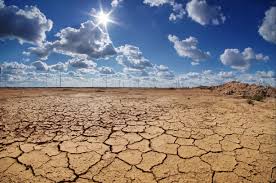Madagascar has received a cheque of US$2.13 million from the Insurance Corporation of the Pan-African Risk Management Mutual (ARC) to cover the loss of livelihood of its population caused by climatic disasters.
This payment from ARC is “the premium of a drought insurance taken out by Madagascar with the support of the African Development Bank (AfDB) through the African Disaster Risk Financing Initiative (ADRIFI),” a statement received by APA on Wednesday explained.
ADRIFI has financed “the totality of the insurance premium for the year 2019-2020 with a view to the sovereign transfer of the drought risk for the Big Island.”
The compensation payments will be made to protect the lives and livelihoods of 600,000 vulnerable people affected by the drought. The aim is to “prevent them from resorting to harmful coping mechanisms, such as consumption of their seeds, sale of agricultural equipment, internal displacement or forced migration.” In Madagascar, the poor harvests of the past season have made these populations vulnerable.
During the ceremony to receive the cheque, Madagascar’s Minister of Economy and Finance, Richard Randriamandrato, said: “the Pan-African Mutual Insurance Society for Drought Risk Management is one of the lasting solutions to strengthen the efforts of the government and partners in the far south of Madagascar and demonstrates the mutual assistance between friendly African countries in coping with natural disasters, particularly drought.
Mr. Randriamandrato went on to emphasize that this mechanism will enable his country “to secure the environment for farmers and the livelihoods of vulnerable populations in the Deep South, victims of recurrent drought, as well as to preserve their production capital.”
The early interventions to be implemented with this fund will focus on cash transfer and ACT (Cash for Work) for 15,000 vulnerable households, nutritional support for 2,000 children under 5 years of age and water supply for 84,000 households.
Due to its geographical position, Madagascar is faced with various climatic shocks: cyclones, floods, drought… which devastating consequences put pressure on public finances and real GDP growth.
On this basis, “strengthening this insurance mechanism only encourages the implementation of the National Risk and Disaster Management Policy and Strategy in Madagascar, particularly the promotion of financial resilience to climate hazards,” the Minister of Economy and Finance said.
According to AfDB, natural disasters caused about US$420 million in collateral damage in 2017 in Madagascar.
For this reason, the country joined, in October 2019, Group VI of countries insured by the ARC against drought risks for the 2019-2020 agricultural season, as one of the pilot countries of the ADRIFI programme.
For his part, the vice Secretary-General of the United Nations and Managing Director of the Pan-African Risk Management Mutual, Mohamed Beavogui, said that “the compensation payment made by ARC to support the drought-affected population in the Great South of Madagascar was made possible by the leadership and commitment of the (Malagasy) government to protect its population.”
Agriculture, which accounts for about 25 percent of Madagascar’ GDP, employs 78 percent of the working population. It is a very important sector for the socio-economic development of the country.
“Our objective in working with Member States to provide insurance against disaster risks is to promote resilience and provide financial protection to the vulnerable population in case of peril,” said Lesley Ndlovu, Executive Director of the ARC Insurance Company.
In March 2017, the ARC and the AfDB initialed a Memorandum of Understanding to help African states manage the risks of natural disasters and be better prepared to respond effectively to climate-related risks that severely affect the continent.
It is within this framework that the financial institution supported the Malagasy government in paying its insurance premium over a five-year period (2019-2023) through the ADRIFI programme.
“The payment of the indemnity, through the insurance contract, comes at the right time, as Madagascar is also facing the challenge of the Covid-19 pandemic. This shows that risk transfer programmes can help countries manage climate-related disasters and relieve pressure on public finances when multiple crises occur,” said AfDB’s Vice President for Agriculture, Human and Social Development, Jennifer Blanke.
The ARC, supported by the United Kingdom, Germany, Sweden, Switzerland, Canada, France, the Rockefeller Foundation and the United States, is helping African Union (AU) member states reduce the risk of loss and damage caused by extreme weather events affecting African populations by providing, through sovereign disaster risk insurance, targeted responses to natural disasters in a more timely, cost-effective, objective and transparent manner.
Since 2014, 45 insurance contracts have been signed by ARC member states. This represents US$83 million in premiums paid for a total insurance coverage of US$602 million to protect 54 million vulnerable people in participating countries.
ID/cgd/lb/abj/APA


